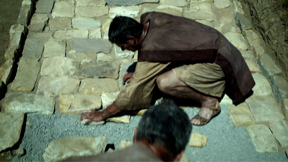Sign up for FlowVella
Sign up with FacebookAlready have an account? Sign in now
By registering you are agreeing to our
Terms of Service
Loading Flow

Arches
- Romans improved Greek designs by introducing new building techniques.
- Vaults, Basilica, Dome, and Arch
Roman Cement
- Opus caementicium, or Roman concrete, consisted of three parts which included
slaked lime, or lime to which water was added, volcanic ash called pozzuolana
from the town of Pozzuoli in Italy, and fist-sized pieces of rock.
Aqueducts
- Rome was the only ancient city with a feasible water supply, nearly two hundred cities in
the Roman colonies that had these structures.
- Aqueducts greatly affected the Romans’ luxuries of irrigation, flushing toilets,
underground sewage systems, fountains, and ornate public baths
Roman Roads
- Ancient Romans built a road system of more than one hundred fifty-two thousand miles, or
two hundred forty-five kilometers, stretching from Britain in the west to the Tigris and
Euphrates Rivers in the east, and reaching the Danube River in the north and as far south
as North Africa.
- These systems of roads aided in the movement of military troops regardless of weather
conditions and the overseeing of Roman provinces in various locations and cultivated
people of all manners into underdeveloped areas, which later, stimulated the growth of
villages and towns close in their proximities.
Ancient Rome’s Architectural Innovations and Inventions
#MerionMercy
GoldenGirls

